KATHMANDU: Rabi Lamichhane, a former television presenter turned politician, quickly rose to prominence, securing 20 seats for his newly established party.
He has served as Home Minister and Deputy Prime Minister on two occasions.
However, a court ruling that stripped him of his parliamentary seat in the passport and citizenship case temporarily halted his political career.
He later made a comeback by winning a by-election in Chitwan. Currently, he is in police custody in Pokhara, facing allegations of cooperative fraud and organized crime.
Rabi is accused of embezzling Rs 5.5 crores from a cooperative through Gorkha Media.
It is alleged that he took Rs one crore from the Suryadarshan Cooperative as part of this scheme.
In response, the Rastriya Swatantra Party (RSP) has accused the government of politically motivated actions against Rabi, which has sparked street protests organized by the party.
But why has the RSP chosen to mobilize now? Reactions on social media have been mixed, with heated discussions unfolding both for and against Rabi.
The debate has intensified notably between supporters of the RSP and the CPN-UML party.
Some individuals have deified Rabi, while others have demonized him, leading to comments that often appear irrational and unbalanced, causing concern among RSP supporters.
Let’s examine some sentiments shared on Facebook, Twitter, and other social networks regarding Rabi’s arrest:
Sita Pokharel Ghimire: “This current blue revolution has reduced my faith in the RSP. I believe their demand should be for a fair investigation into Rabi and other party leaders. If they are found guilty, they should be held accountable. The behavior exhibited by RSP supporters, combined with their pressure on the court, has led many well-intentioned Nepalis to perceive the RSP as a party of thugs. In this crisis, restraint is needed, yet many RSP parliamentarians are acting defiantly, which worries many Nepalis.”
Dr. Toshima Karki (RSP MP): “Oh government!!! This voice reflects the cries of the citizens. Your opulent lifestyle in Baluwatar, your lavish palace, and your insatiable hunger for luxury overshadow the suffering of ordinary people! Thousands affected by cooperative fraud are left without gas, shelter, or basic needs. People are dying.”
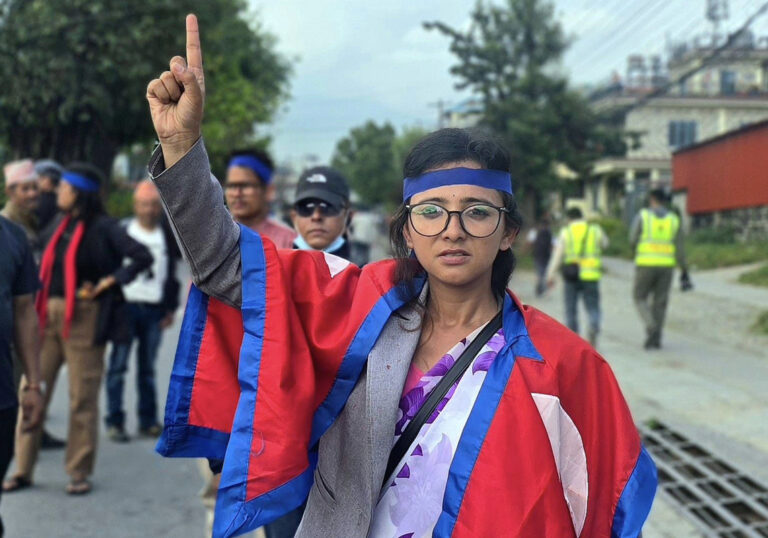
“Does your democracy listen to the citizens’ voices or suppress them? Beware, government! Don’t try to choke democracy. Ensure that the innocent are not ensnared, and the guilty are brought to justice! Return 88 billion! Stop political revenge! Maintain the rule of law! We don’t need a corrupt government. Justice must prevail, or the masses will rise! What is the blue revolution? A peaceful rebellion, the voice of change.”
Gokul Baskota (UML MP): “If the reports from Pokhara are accurate, they are indeed thrilling. If this continues for another five to seven weeks, Pokhara will thrive. Others can seek legal recourse. Democracy can take decisive action on issues that arise within the law, but it cannot dictate outcomes.”
“As the debate rages on, the political landscape surrounding Rabi Lamichhane remains a complex tapestry of admiration and condemnation, leaving many wondering about the future of justice and accountability in Nepal.”
Durga Prasain (Medical Entrepreneur): “It’s acceptable for supporters to take to the streets. MPs are supposed to represent the people, aren’t they? But is it right for all the MPs to join the movement when the party chairman is in custody due to organized crime and misappropriation of cooperative funds?”
“This situation was not even the case with the previous party, which was often criticized. The party chair is in custody under a court order, yet the party has the power to mobilize on the streets against this. Is the issue facing Nepal today solely Rabi’s detention?”
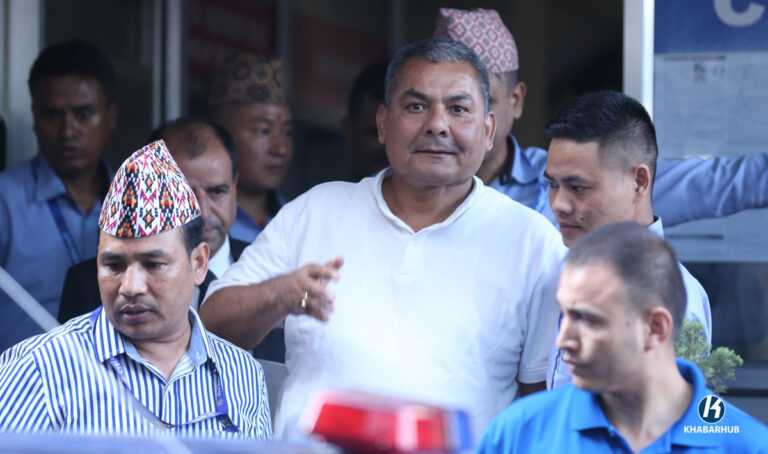
‘” Have all other citizens’ concerns been resolved? While it’s fine for supporters to demonstrate, is it appropriate for all MPs and party officials to be wandering the streets? Such actions not only undermine trust in the respected court but also impede justice for the cooperative victims.”
Ravi Parajuli: “Many young people in my country suffer from political blindness, which even Dr. Ruit cannot treat. We need awareness.”
Damodar Gyawali: “Who is Rabi Lamichhane? Is he a cooperative owner or member? No. Is he a cooperative saver? No. Is he in debt? No. So, who is Rabi? A cooperative fraudster. I don’t understand… Can someone explain?”
Madhav Dhungel (Journalist): “During the power struggle, the Maoists mobilized people nationwide and laid siege to Singha Durbar with a six-day general strike. Mass movements without a clear purpose yielded no results. Subsequently, the Maoists stopped calling it a ‘street movement.’ Now, the RSP seems to be following the same path with a movement lacking direction.”
Swarnim Wagle (RSP MP): “There is hope for the judiciary, and trust lies with the people. This is what Rabi Lamichhane told me during my visit to him in Kaski police custody this evening. His courage is unwavering. However, the government’s actions are bold.”
“We respect the processes and judgments of the honorable courts. We have not spoken to undermine the dignity of the court. However, we believe the Ministry of Home Affairs is gathering evidence with improper intent, and we view the manner of his arrest as vindictive. There has been no risk of escape or evidence destruction.”
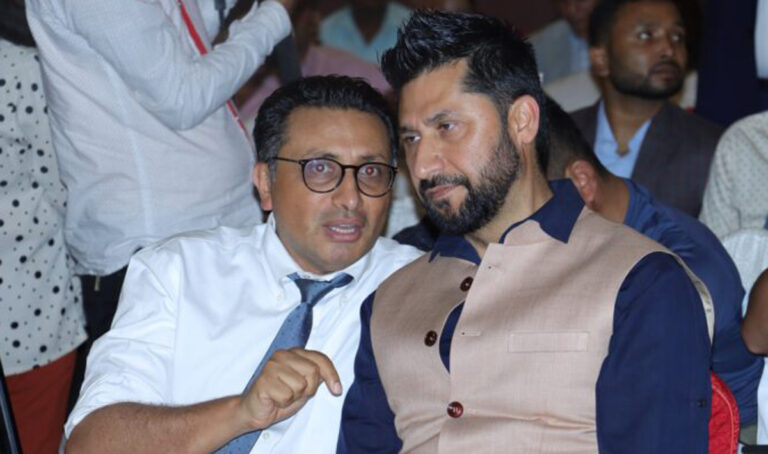
“After being detained for a total of 125 hours (six nights), there has been barely five hours of conversation. The government appears to be using tactics to unnecessarily prolong the investigation by claiming the requested papers have not arrived. Our assertion of political revenge has been substantiated.”
Tika Prasad Dhakal: “Street movements have a very simple dynamic. If those protesting to increase pressure do not feel any pressure themselves, the opposing pressure will be exerted on the protesters. Society eventually stops taking those who abandon the demonstration seriously.”
JP Gupta (Former Minister): “I cannot definitively say whether Rabi is right or wrong. However, when he was imprisoned in a fraud case, his supporters seemed to suggest that singing his praises has led to societal downfall. Where do we draw the line for the motivation behind significant change, which once inspired consciousness in society? Where is that fervor today on the streets of Pokhara?”
“Engaging in personal attacks against the leader who appointed Rabi as Home Minister and Deputy Prime Minister twice is an example of ingratitude. Even when a parliamentary inquiry committee is formed, it is inappropriate to mention his name.”
Gokul Baskota (UML MP): “If the reports from Pokhara are accurate, they are indeed thrilling. If this continues for another five to seven weeks, Pokhara will thrive. Others can seek legal recourse. Democracy can take decisive action on issues that arise within the law, but it cannot dictate outcomes.”
Bishwadeep: “Everyone has flocked to Pokhara, including leaders of the RSP. However, it seems everyone is playing their own tune. Each person’s understanding of the movement appears different, rendering it more of a joyride than a cohesive movement.”
Nirmala Dhakal (Sociologist): “Good morning from a country where a herd of sheep gathers for a blue revolution when someone involved in cooperative fraud is detained for investigation.”
Sumana Shrestha (RSP MP): “Nepalese people, you are witnesses to this and should remember it in the next election. As the country attempts to recover from the recent humanitarian disaster, it has become evident that the priorities of the UML and Nepali Congress-led government are centered around seeking revenge.”
“We must reflect on why political vendetta is being directed against an influential leader of the opposition party. How are they attempting to divert public attention from their inaction during the disaster? Can we forget the Prime Minister’s audacity in blackmailing Lalita Niwas land for his party’s building?”
“The government has repeatedly formed commissions to address the refund of money for people trapped in cooperatives, yet it has not dared to implement any solutions. How do they plan to hide this from the public? The current situation raises concerns about the future. Small parties are being accused of causing instability, and there is a growing push to advocate for a two-party system.”
“This could lead to efforts aimed at dismantling smaller parties and introducing ordinances to merge them, concentrating power in just two parties that can exploit the state in turn. They may be waiting for a favorable astrological sign for such a merger.”
Bishnu Rijal (UML Leader): “It is deeply objectionable to raise slogans and hurl insults at Prime Minister KP Sharma Oli following the arrest of Rabi Lamichhane, the former Managing Director of Gorkha Media Network, in the cooperative fraud investigation.”
“The significant impact of his actions makes it difficult for him to be disregarded. Thus, we have no choice but to unite as those who genuinely desire change in the country. The attack on him is a precursor to future assaults on any leader we deem ideal.”
“Engaging in personal attacks against the leader who appointed Rabi as Home Minister and Deputy Prime Minister twice is an example of ingratitude. Even when a parliamentary inquiry committee is formed, it is inappropriate to mention his name.”
Kishor Shrestha (Journalist): “How much stubbornness, lying, and gossip are we witnessing? When the government claims to seek revenge, why not focus on the Ministry of Service Delivery instead of the Ministry of Helplessness? Why appoint a minister in the Ministry of Labor but fail to address the suffering of Nepali brothers and sisters who toil abroad? It seems that some are intent on retaining their positions for personal gain.”
Pashupati Pandey (RSP Supporter): “One cannot remain silent when the entire country is under attack. Whether you view this crowd as a group of unemployed individuals, illiterate people, those with low IQs, or simply as a herd of sheep or devotees, I stand with Rabi. I recall the birth of alternative politics.”
“Ujjwal Thapa also tried to make an impact, and Rabindra Mishra faced intense opposition. Rabi is under attack from the state, and tomorrow, Balen could face the same fate. Balen’s approach is to work quietly behind the scenes, delivering tangible results without drawing attention to himself.”
“The significant impact of his actions makes it difficult for him to be disregarded. Thus, we have no choice but to unite as those who genuinely desire change in the country. The attack on him is a precursor to future assaults on any leader we deem ideal.”
“Note: I apologize if this post has offended anyone; this is my independent opinion. You are not required to agree with me, nor should you expect me to share the same views as yours. In all fairness, the facts are clear.”
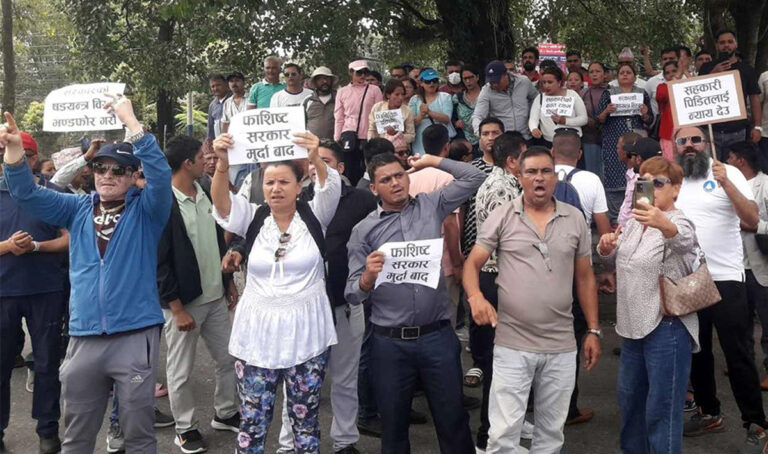


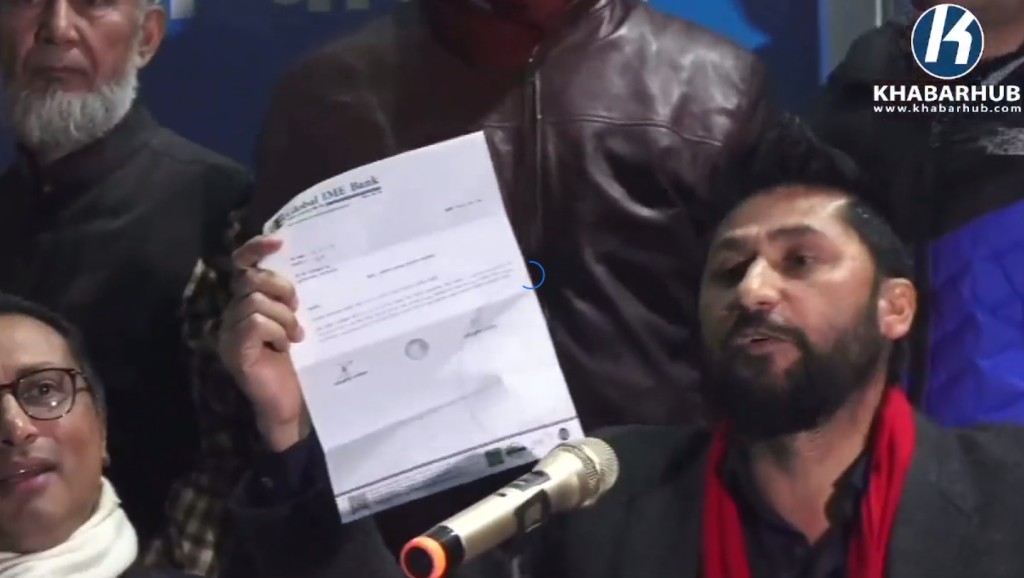
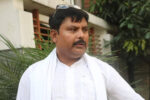
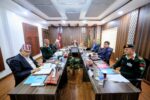


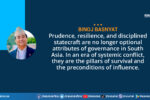

Comment